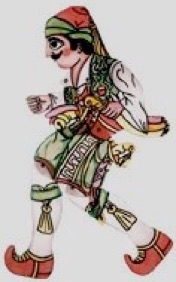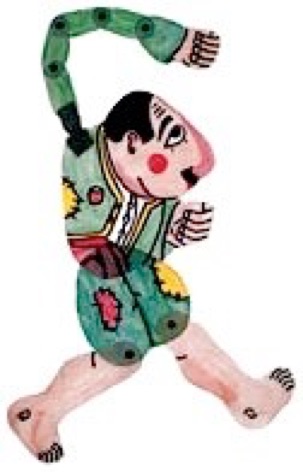Karagiozis:
the legend and the art
of shadow puppetry
Karagiozis:
the legend and the art
of shadow puppetry
The two Aegean centers of Karagiozis performance: Athens, Greece, on the left and Bursa, Turkey, on the right. (Google map)
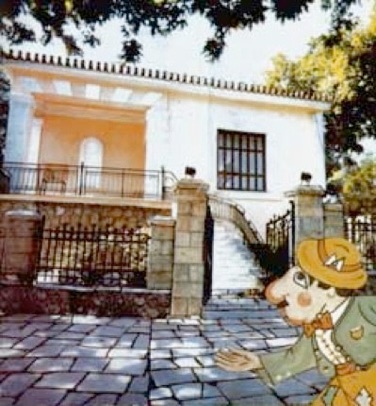
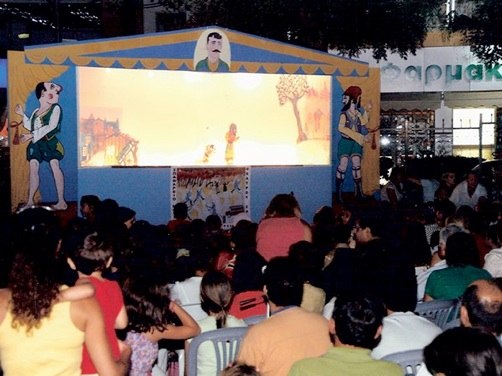
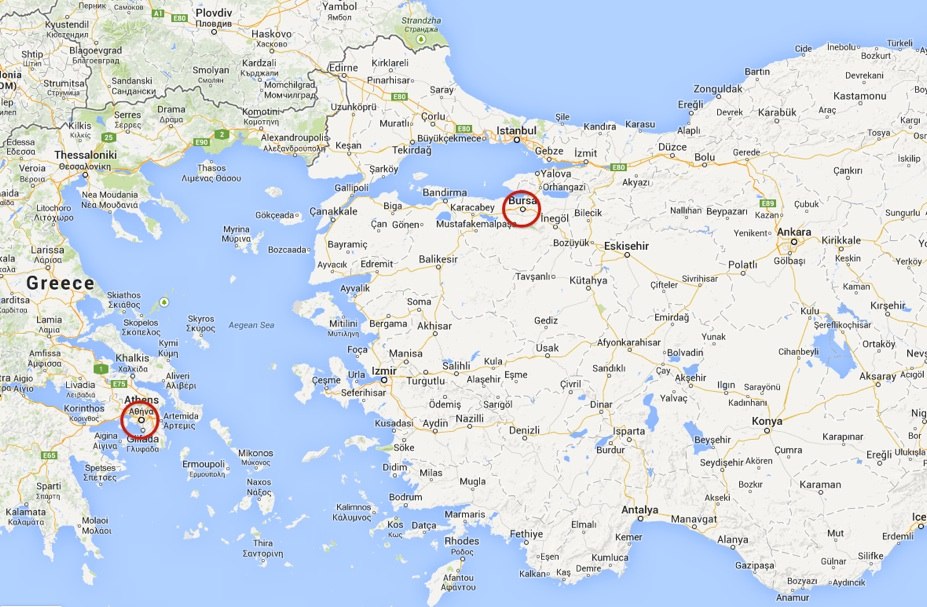
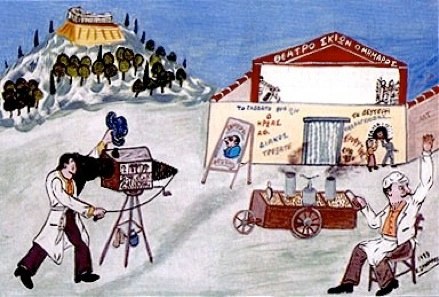
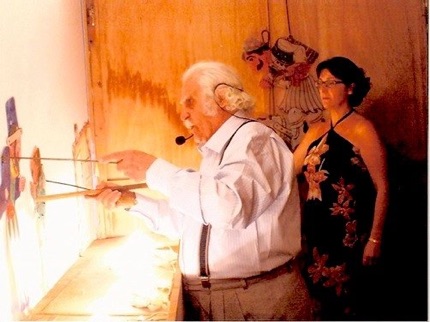
The Spathario Karagiozis museum in Athens. Clockwise from top right: The museum’s outdoor theater in Maroussi, an Athens suburb; Evgenios Spatharis at work; Evgenios Spatharis’s rendition of a Mimaros performance in Athens; the renovated neoclassical building on Maroussi’s Kastalia Square that houses the museum today. (Photos courtesy of Spathario Museum: http://www.karagiozismuseum.gr/presentation/index.htm.)
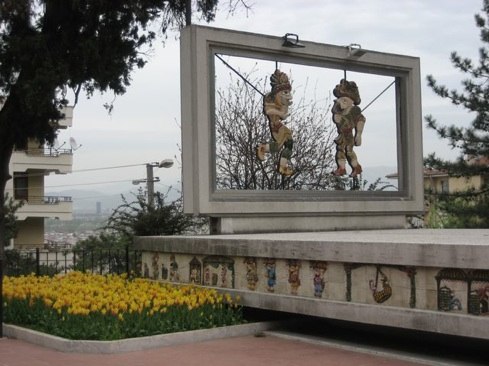
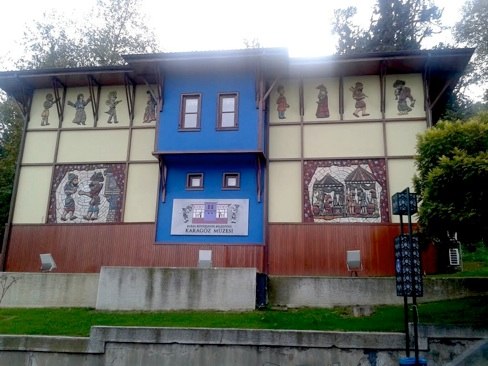
The Karagiozis Museum and Monument in Bursa, Turkey. (Photos courtesy: http://www.panoramio.com/photo/100447338)
Karagiozis:
This is the ideal type of poor Greek (his name means “black eyed”). He is so poor he has renounced any private care and has a merry exalted philosophical view of life. Sometimes he is hard in his jokes, but kind-hearted in end. Teeming laziness and optimism he is also full of good mood and likes to get involved in everything. He mocks others and above all himself. His hand is extremely agile and too long for theatrical reasons, to be able to scratch his back and his head or to gesture. It also has symbolic significance because it represents the intelligent spirit. He easily slaps others and gets slapped back. He is glib and funny, but never ridiculous. He accepts his misfortune as a result of bad luck with the same cheerful perseverance and the same ironic cheer.
The main characters
(Translated from the Spathario Museum’s descriptions...)
Aglaia:
Is K’s wife. She represents the character of poor Greek woman housewife who tries to help her family by working in affluent families homes.
Hatziavatis:
Is K’s partner in crime. He still lives with the memory of the Turkish occupation. He is foxy, anxious, weak, cowardly and sucks up to the powerful. He pretends to be needy and he always tries to trick others. He is the town crier, broker and postman often running orders for the Bey and the Pasha. He is outwardly polite. He is a family man but we never see his wife. He is better educated than K. and always tries to correct him.
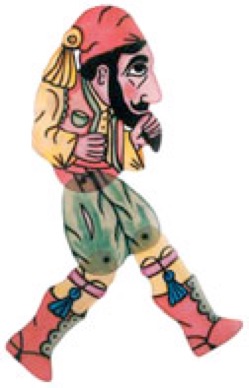

Vezyropoula:
Is the daughter of the Pasha. Pampered, and showing respect to her father, but she always manages to get what she seeks.
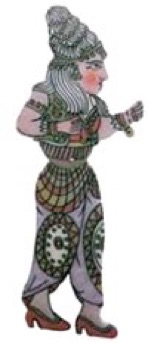
The Bey:
Represents the wealthy bourgeois and general man of higher social class . He is a good family man, moral and usually gives orders to Hatziavatis for various cases, using him as crier or broker.
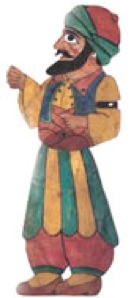
Sior Dionysios: Represents the genteel aristocrat from Zakynthos (island in the Ionian see) who believes he descended from a noble and wealthy family. But he is decent, civilized, virtuous and talks extremely fast. He is well dressed, wears a tall hat and falls easily for K’s mischief.
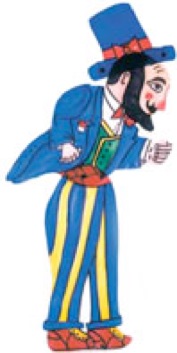
The Jew:
His name is Solomon or Salmon, as K calls him. He is a merchant from Thessaloniki, quite rich, skimpy, cunning and cowardly.
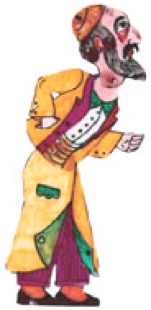
Morfonios:
Called Zacharias, is a very short man with a huge head and long nose so speaks in a nasal voice. He is well fed and very weak-hearted, so he is bullied by K he often faints.
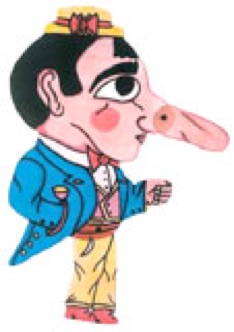
Barba Yorgos: Represents the mountain Greek, who has remained incorruptible through the passage of time. He represents goodness, morality and strength. He is proud of his nephew K and he always offers him protection.
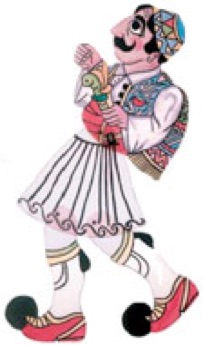
The Stavrakas:
Represents the tough street guy from Piraeus, who walks with a swagger and dresses in a street-appropriate manner. He's a liar and brags a lot. He calls himself Stavrakis Jimis.
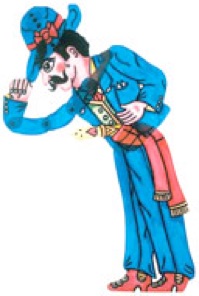
The Pasha:
It is the representative of the Turkish power and solemnity with severe, austere and the grandiose eloquence of speech. He is impressive, with a rich, official dress and never sings because he is considered respectable.
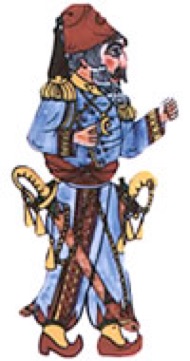
The Veligkekas:
Represents the enforcer of public order. He is a crude Turkish-Albanian, unintelligent and uncivilized, who speaks badly with assorted Arvanitika Greek and Turkish expressions.
